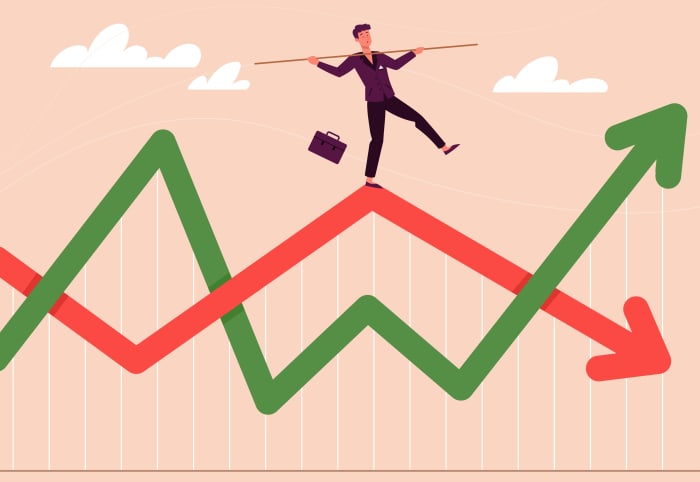The Stock And Commodity Market
The stock market offers a wide selection of assets where individuals can park their idle capital to turn a profit. However, it’s vital to select the right avenue to maximize rewards. Investors looking for aggressive returns habitually turn to one of the two asset types – stocks or commodities.
Stocks denote company ownership, while commodities represent goods that include agricultural products, metals, oil, and so on. These categories of asset classes reserve sizeable profit-making potential. However, they are traded in different marketplaces. It is, thus, essential to grasp the difference between stock market and commodity market before investing in either.
Stock Market
It refers to a collection of exchanges where stocks are sold, bought, and traded. Stocks, as mentioned earlier, denote the ownership of a company. stocks are best understood as units of a company’s overall equity.
If a company’s equity is worth AED 10,000.00 and it has AED 10, each stock represents only AED 1000.00 of its entire equity. A person that holds 1 stock has a claim to only that portion of the company’s ownership.
The value of one’s holding continually changes with alterations in the company’s equity, brought about by Dubai Financial Market, An individual can sell his/her stocks on the day they are bought, one year from the day, or even ten years from that day, depending on strategic investment objectives.
The market that facilitates this transaction – buying and selling – is the stock market, and there are several brokers within it. In the Global stock market, there are two primary stock exchanges – international and Local Market.
To invest in stocks listed in any of these exchanges or others, an investor require to have a trading and dematerialization account.
Commodity Market
As the name suggests, it’s a marketplace for commodities. These commodities are broadly defined under two categories – The former refers to extracted and mined goods, like crude oil and gold. These are two of the most precious and widely traded commodities globally.
The latter category includes agricultural products and livestock, such as rice, wheat, eggs, pork, cattle, etc. These usually have a much shorter shelf life compared to hard commodities.
Commodity markets enable selling, buying, and trading of these products. One of the points in commodity vs stock is the trading process. Most traders enter into a futures contract to trade in commodities.
These contracts obligate two parties to execute a transaction at a predetermined price on a prefixed date. Farmers and manufacturers often leverage futures contracts to hedge against potential losses. However, these also act as an exceptional instrument to realize a profit.
Individuals investor can also choose to invest directly in commodities.
What are the differences between Stock Market and Commodity Market?
To distinctly understand the difference between the stock market and commodity market, it’s essential to analyze the effects of different economic factors on each.
Inflation
Inflation refers to an upward trend in prices of virtually all goods in an economy. Usually, inflation occurs in tandem with an increase in the income of consumers. However, in some cases, the former outstrips the other.
A commodity market thrives under such inflation because as prices of raw materials increase, more and more investors flock towards those. This leads to an increase in prices of manufactured goods, leading to lowered consumption. It snowballs into poor performance across different industries, resulting in a bearish trend in the stock market. It’s one of the most significant points in the stock market vs commodity market dichotomy.
Value of the US Dollar
USD’s effect is particularly pronounced in the case of gold. The US dollar shares an inverse relationship with gold’s value. Usually, gold is sought as an investment haven when USD is underperforming. On the other hand, it’s not so strongly preferred by investors when the US dollar is trending upward.
This inclination towards gold also coincides with a waning interest in the stock market in some cases, like in the recent economic crisis that hit the markets in late February. Apart from these, a few other pointers in stocks vs commodities are mentioned in the table below. Studying the difference between stock market and commodity market is crucial before deciding to invest in either. It’s also vital to analyse the options at hand in these markets to ensure a well-informed decision.


